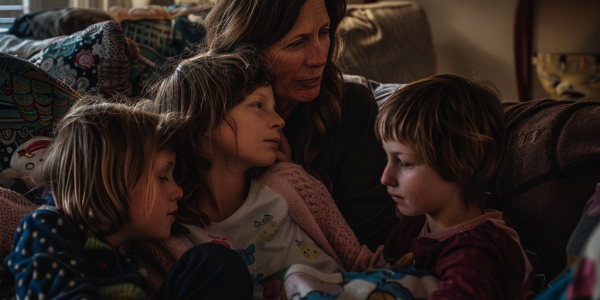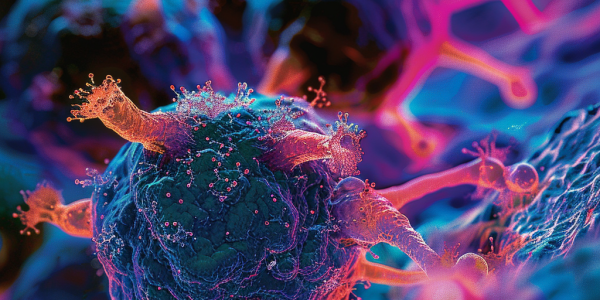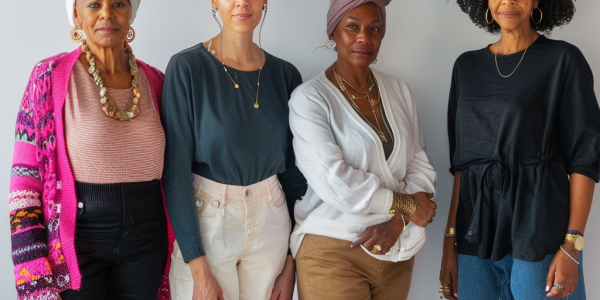Study Reveals Challenges of Early Breast Cancer Detection in Nigeria
Learn about the challenges of early breast cancer detection in Nigeria and the importance of health education and timely diagnosis. Efforts to overcome barriers in low-income countries like Nigeria are crucial for improving survival rates and reducing the burden of the disease.
Groundbreaking Blood Test Predicts Breast Cancer Recurrence Years in Advance
Groundbreaking new blood test hailed as major breakthrough in fight against breast cancer, predicting risk of cancer returning 3 years before traditional scans. ‘Incredibly exciting’ liquid biopsy could significantly improve chances of overcoming disease. Research showcases effectiveness of personalized test in detecting cancer DNA in blood, identifying patients at risk of relapse up to 41 months in advance. Experts optimistic about proactive approach to treatment based on predictive capabilities.
Study Reveals Weight Gain Concern Among Breast Cancer Survivors
Recent research presented at the Endocrine Society’s ENDO 2024 annual meeting reveals a concerning trend among breast cancer survivors. Nearly one in five survivors may experience weight gain exceeding 10% of their body weight post-treatment. This weight gain not only increases the risk of cancer recurrence but also raises the likelihood of cardiovascular diseases. Experts emphasize the importance of daily physical activity in helping women maintain a healthy weight following breast cancer treatment, highlighting the need for continued support and awareness in addressing post-treatment issues.
Dance Moms Star Kelly Hyland Reveals Breast Cancer Diagnosis
Dance Moms star Kelly Hyland shares her breast cancer diagnosis journey, from a clean mammogram to a shocking stage 1, grade 3 invasive carcinoma diagnosis. Despite the unexpected news, Kelly remains determined to face the challenges ahead with courage and resilience.
Olivia Munn Opens Up About Challenging Battle with Breast Cancer
Olivia Munn, the 43-year-old actor, shares her challenging battle with breast cancer in a recent interview. Despite facing luminal B breast cancer in both breasts, Munn remains positive and grateful for her health. Her story highlights the importance of aggressive treatment for aggressive cancers, serving as an inspiration to many.
5 Evidence-Based Strategies to Reduce the Risk of Breast Cancer
Learn about five evidence-based strategies to reduce the risk of breast cancer, including maintaining a healthy weight, exercising regularly, breastfeeding, consuming a healthy diet, and limiting alcohol intake. By incorporating these lifestyle changes, you can take proactive steps towards promoting overall well-being and potentially lowering the likelihood of developing breast cancer.
Breakthrough in Cancer Treatment Research Achieved with New Immune System Technology
Bar-Ilan University researchers have made a groundbreaking advancement in cancer treatment with new immune system technology, allowing for personalized treatments based on individual immune responses. By monitoring immune system changes around cancer cells, insights into patient reactions to immunotherapy are gained. This research, led by Dr. Shahar Alon, sheds light on the interaction between immune and cancer cells, offering valuable information for tailored treatment decisions and improving patient outcomes.
Alarming Rise in Breast Cancer Rates Among Young Women in Ottawa
A recent study in Ottawa reveals a concerning trend of rising breast cancer rates among young women, with cases reported in individuals as young as their 20s. Factors such as environmental influences, lifestyle changes, and alcohol consumption are being considered as potential contributors. The study emphasizes the need for enhanced screening programs and awareness initiatives for young women to address this growing risk.
Persistent Disparities in Breast Cancer Survival Rates at the Neighborhood Level Revealed in Recent Study
Recent research in JAMA Network Open reveals persistent disparities in breast cancer survival rates at the neighborhood level, despite advancements in screening and treatment. Neighborhood disadvantage impacts access to essential services, leading to shorter survival rates. Targeted interventions are needed to address these disparities and improve outcomes.
Neoadjuvant Radiotherapy Shows Promise in Breast Cancer Treatment
Learn about the study evaluating the survival outcomes of neoadjuvant radiochemotherapy (NARCT) in early breast cancer patients undergoing breast conserving surgery (BCS) or immediate breast reconstruction (IBR). Discover how neoadjuvant radiation therapy (NART) compares to post-operation radiation therapy (PORT) in terms of breast cancer-specific survival (BCSS) and overall survival (OS) for patients aged 80 years or younger with unilateral T1-T4 invasive ductal breast cancer.










